- Home
- Philip Pullman
The Tin Princess
The Tin Princess Read online
THE TIN PRINCESS
PHILIP PULLMAN
By Philip Pullman
The Sally Lockhart Quartet
The Ruby in the Smoke The Shadow in the North The Tiger in the Well The Tin Princess
His Dark Materials
Northern Lights
The Subtle Knife
The Amber Spyglass Lyra's Oxford
Once Upon a Time in the North The New Cut Gang
Thunderbolt's Waxwork The Gas-Fitters' Ball Contemporary Novels
The Broken Bridge The Butterfly Tattoo The Good Man Jesus and the Scoundrel Christ Books with Pictures and Fairy Tales
The Scarecrow and his Servant Spring-Heeled Jack Count Karlstein
The Firework Makers' Daughter I Was A Rat!
Puss in Boots
Mossycoat
Aladdin
Clockwork
Grimm Tales: For Young and Old Plays
Frankenstein (adaptation)
Sherlock Holmes and the Limehouse Horror
THE TIN PRINCESS
PHILIP PULLMAN
A SALLY LOCKHART MYSTERY
About the Author
Born in Norwich in 1946, Philip Pullman is a world-renowned writer. His novels have won every major award for children's fiction, and are now also established as adult bestsellers. The His Dark Materials trilogy came third in the BBC's "Big Read" competition to find the nation's favourite book. In 2005 he was awarded the Astrid Lingren Memorial Award, the world's biggest prize for children's literature. Philip is married with two grown-up children, and lives in Oxford.
"Stories are the most important thing in the world. Without stories, we wouldn't be human beings at all"
PHILIP PULLMAN
For Gordon Dennis, with gratitude and affection
Thanks to Tom for help with the family tree
Contents
CERTAIN ITEMS OF HISTORICAL INTEREST 1882
MAJOR CHARACTERS IN THE TIN PRINCESS
MAP OF RAZKAVIA
FAMILY TREE OF THE RULING HOUSE OF RAZKAVIA
Chapter OneTHE INFERNAL MACHINE
Chapter TwoMRS GOLDBERG
Chapter ThreeTHE IRISH GUARDS
Chapter FourTHE ALHAMBRA THEATRE
Chapter FiveETIQUETTE
Chapter SixEAGLES AND BIRDLIME
Chapter SevenWHIRLPOOL
Chapter EightTHE CORONATION
Chapter NineDISPOSITIONS
Chapter TenTHE MAP ROOM
Chapter ElevenINSIDE THE GROTTO
Chapter TwelveSTATECRAFT
Chapter ThirteenTHE LITTLE GLASS GLOBE
Chapter FourteenBETRAYAL
Chapter FifteenSAUCEPAN
Chapter SixteenWOOL
Chapter SeventeenTHE FUNICULAR RAILWAY
Chapter EighteenWOLFLIGHT
Chapter NineteenGHOSTS
Chapter TwentyTHE SWISS CLINIC
Major characters in
THE TIN PRINCESS
REBECCA WINTER (BECKY),
aged sixteen
JAMES TAYLOR (JIM),
a consulting detective
MISS ADELAIDE BEVAN,
a young woman living in St John'sWood HERR STRAUSS,
otherwise Prince Rudolf of Razkavia
SALLY GOLDBERG,
a financial consultant
DANIEL GOLDBERG,
Sally's husband, a political journalist lIAM, CHARLIE, SEAN,
and other members of a street gang known as the Irish Guards COUNT THALGAU
Razkavian Ambassador to the Court of St James (i.e. to Great Britain) COUNTESS THALGAU
FRAUWINTER,
Becky's mother, an artist
CARMEN ISABELLA RUIZ Y SOLER,
an actress
PRINCE OTTO VON BISMARCK,
Chancellor of Germany
HERR GERSON VON BLEICHRODER,
a Berlin banker
JULIUS,
Bleichroder's secretary
KING WILHELM OF RAZKAVIA,
Prince Rudolf's father
BARON GODEL,
Chamberlain, Head of the Royal Household Karl von GaisberG,
a student, member of the Richterbund Glatz
a student over-excited by politics
COUNT OTTO VON SCHWARTZBERG,
Prince Rudolf's cousin, a huntsman
ANTON, FRIEDRICH, FRITZ, HANS, HEINRICH, JAN, MICHAEL, WILLI,
students, members of the Richterbund HERR ALOIS EGGER,
a cigar merchant
THE ARCHBISHOP OF RAZKAVIA
FRAU BUSCH
a huntsman's widow
HERR BANGEMANN,
a clerk in the Razkavian Ministry of Foreign Affairs PRINCE LEOPOLD
MATYAS,
landlord of the Cafe Florestan
PRIVATE SCHWEIGNER
a sentry of the Eagle Guard
CORPORAL KOGLER,
a sentry of the Eagle Guard
MIROSLAV AND JOSEF,
two elderly brothers who are river-thieves ... and various servants, soldiers, citizens, diplomats, doctors, ticket-collectors, mining engineers, Palace officials, butcher's boys, funicular railway station-members, clerks, musicians, telegraph operators, landladies and assassins.
Chapter One
THE INFERNAL MACHINE
Rebecca Winter, talented, cheerful, and poor, had arrived at the age of sixteen without once seeing a bomb go off. That was not hard to do; London, in 1882, was no more explosive than it is now; though it was not less explosive, either, dynamite being already a vigorous instrument of politics.
However, on this fine May morning, Becky was not thinking of bombs. The sun was bright and the sky was dotted with fat little clouds like dabs of flake white on a wash of ultramarine, and Becky was walking down a tree-lined road in St John's Wood in north London, thinking about German verbs. She was on her way to meet her new pupil - her first pupil, in fact; and she was anxious to make a good impression and acquit herself well.
Her cloak was a little shabby and her bonnet was unfashionable, and there was a hole in the sole of her right boot. But that didn't matter. The road was dry and the air was fresh, and that young man in the straw boater had given her what might have been an interested look, and Becky felt splendid, for she was an independent woman - or nearly, anyway. Her head high, she ignored the speculative young man in the boater, checked the road sign, and turned up into an avenue lined with comfortable villas.
German was Becky's first language. Her second was English, her third Italian, her fourth French, her fifth Spanish; she was in the process of mastering Russian, and she could swear in Polish and Lithuanian. She lived with her mother and grandmother in a plain boarding-house in the most modest corner of Maida Vale, where her mother worked as an illustrator of cheap novels and sensational periodicals. They had lived there ever since they'd been forced into exile from central Europe, when Becky was three, sustained by each other's diligence and by the local network of exiles from their own country and others: a poor, noisy, quarrelsome, generous, vigorously-gifted bunch of people from almost every country in Europe. It was as natural to Becky to think in several languages as it was to assume that she would have to earn a living; it seemed only sensible to put the two things together.
At the same time, she chafed at the limitations hemming her in. Like all people with an unromantic appearance (just on the sturdy side of plump, with bright, black inquisitive eyes, cheeks that flushed too easily, unruly dark hair), she had, she was sure, the soul of a brigand. She hungered for romance. The only romance she'd known so far had been a liaison with a butcher's boy when she was twelve. He had sold her a cigarette in exchange for a kiss, but she hadn't even smoked it all, because he said it was dangerous for women to smoke cigarettes in case they went mad. So they sat in th
e bushes and shared it, and she was sick over his boots, which served him right. Somehow, though, it hadn't satisfied her soul. She longed for cutlasses, pistols and brandy; she had to make do with coffee, and pencils, and verbs.
But there was a consolation in the verbs. She was genuinely fascinated by how languages worked, and if she couldn't live with a band of robbers in a Sicilian cave, she was prepared to study linguistics and philology at university. But that cost money. So she had done what many of her fellow exiles did, and placed an advertisement offering her services as a language tutor, specializing in German and Italian.
It had drawn a reply almost at once.
It was a curious reply, too. A young gentleman, who had insisted on speaking English though it was clear to both Becky and her mother that he'd have been happier in German, had engaged her to come each morning to his villa at Number 43 Church Road, St John's Wood, and tutor a Miss Bevan. The money he offered was ample, his embarrassment (he was a very young man) was plain. Becky and her mother had spent hours afterwards speculating about him. Becky was sure he was an anarchist; her mother was equally sure that he was a nobleman, or even a prince.
"I have seen princes, and you have not," she said. "Believe me, he's a prince. And as for her..."
They couldn't begin to guess about Miss Bevan. Was she young? Old? A child? A beautiful, sinister spy?
Well, Becky thought, she'd soon find out. She turned into Church Road, and was about to open the gate of Number 43, which was a white-painted villa with a front path shadowed by heavy laurels, when someone said, "Excuse me, miss."
She stopped in surprise. It was the young man in the straw boater. How had he arrived in front of her?
He was in his early twenties, with a vivid, intelligent expression, green eyes, and hair the same colour as his hat. There was an air about him she couldn't quite place: he was a gentleman, to judge by his appearance, but something about his confident manner spoke of acquaintance with stables, and stage doors, and low public houses.
"Yes?" she said.
"Do you happen to know the young lady who lives in this house?"
"Miss Bevan? As a matter of fact, no, not yet. I've been engaged to teach her German. But who are you? And what business is it of yours?"
He produced a card from his waistcoat pocket. It said J. Taylor, Consulting Detective, and gave the address of a photographic firm in Twickenham. Becky felt slightly unreal.
"You're a detective? What on earth are you detecting?"
"I think your Miss Bevan might be someone I've been looking for," he said. "I'm sorry to take up your time. May I ask your name?"
"Miss Rebecca Winter," Becky said frostily. "Excuse me, please."
He stood aside with a slight satirical bow, replaced his straw hat at a jaunty angle, and walked away. Becky blinked, took a deep breath, walked up the path and rang the bell.
A pert maid let Becky in, and let her know by a glance what she thought of her figure. Becky could raise a disdainful eyebrow when she wanted to, and she did so now, spoiling the effect slightly by tripping on the rug at the foot of the stairs.
"Wait in here," said the maid, showing her into a sitting room off the landing, and shutting the door behind her.
Becky found herself in a pretty little room facing the front of the house. The window was open, and Becky could see the blue sky and green leaves, and smell the fresh air. The furniture was expensive, but too big, and crowded the room oppressively. There were no books, and the pictures were dull; the only interesting thing in the room was a stereoscope. Becky picked it up and looked at the slide in the frame. It was a picture of a little girl in ragged clothes sitting on the knee of a thin man with a huge moustache, and printed on the back were the words of a sentimental song.
"What the bloody hell are you doing?"
Becky nearly dropped it, and spun around to see a young woman in the doorway, sharp and dark and suspicious.
"I'm sorry," Becky said. "Miss Bevan, I presume."
"Who are you?"
"Miss Winter. Becky Winter. Your tutor."
"What were you doing with that?" she said, frowning at the stereoscope.
"I just love stereographs. I know I shouldn't have touched it."
"H'mm," said Miss Bevan, and came into the room. She looked Becky up and down, and then sat in an armchair by the open window, leaning back languidly and watching Becky with lazy, suspicious amusement.
She wasn't altogether pretty; she was too thin for that, and there was a sharpness about her face, and something challenging in her manner, and she was gaudily overdressed, and her voice was harsh and cockney - but there was some quality about her that Becky couldn't help being caught by, a hint of vulnerability, a softness under the scorn; and her eyes were lovely, dark and enormous; and she moved with the grace of a cat.
"What's this tutoring lark then?" she said.
"I was engaged by a Herr Strauss to come and teach you German."
"Prove it."
Becky blinked. "But didn't you know?"
"Anyone could come in here and spin a yarn like that. You might be an assassin or summing. You might have a gun in that bag of yours. How do I know who you are?"
"Oh, really - I've got books in here, look. Didn't he tell you I was coming?"
"Might've."
Miss Bevan stretched lithely and relaxed again. She wasn't really suspicious, Becky thought; just bored. She looked about nineteen or twenty, and now Becky had seen her, she could guess at the relationship between her and the mysterious Herr Strauss. St John's Wood was notorious as a place where rich gentlemen used to set up their mistresses in households of their own.
"What you blushing for?" inquired Miss Bevan.
"I'm not. Look, we'd better begin. Have you done any German--"
"Oh, pooh. Who was that bloke at the gate?"
"The young man in the straw hat? A detective. He gave me his card."
She handed it to Miss Bevan, who frowned at it and dropped it on the bamboo table beside her.
"Detective," she said wearily. "Tosh. Probably a reporter. Here, can you play Halma?"
"Yes, but--"
"Or what about this 'un here? I got it Monday, and I ain't played it yet. I forget what it's called..."
She jumped up and reached to a shelf which was full of coloured cardboard boxes of children's board games.
"I plays 'em with Herr Strauss of an evening," she said. "What's this one called?"
She was squinting at it as if she were too vain to wear spectacles.
"It's called Ludo, or Parcheesi," Becky said. "But hadn't we--"
"D'you know how to play it?"
"Well, we could read the instructions, but hadn't I better start teaching you German? After all, Herr Strauss is paying me to."
"How much?"
"Half a crown for an hour."
"Well, I'll pay you twice that to play Halma with me. Go on."
"No. I'll play with you for nothing, but I must teach you as well. I made an agreement with Herr Strauss."
Miss Bevan scowled and slumped back on the sofa. She eyed Becky appraisingly.
"You're honest, ain't yer?" she said.
"I don't know. I've never been tempted to be dishonest. Why?"
"Shall I tell you a secret?"
"If you like. But you hardly know me."
"I don't know anyone else," said Miss Bevan bitterly. "Only the cook and the bootboy and the parlourmaid, sly scheming bitch that she is, and I wouldn't tell her the time of day, even s'posing I knew it. No, it's driving me wild, cooped up here like a hen. I can't read and I can't write..."
"Is that the secret?"
"That's part of it. The Prince ought to've got you to teach me that, instead of German."
"The Prince?" said Becky. "D'you mean Herr Strauss? Is that the rest of the secret?"
"Part of the rest. You guessed anyway, didn't yer?"
"My mother did. Prince what, of where?"
"Prince Rudolf of Razkavia. Bet you never heard of
it."
Becky blinked, and felt a little breathless. "Yes. I have heard of it. But why ... I mean ... I thought..."
"And he's in danger. I don't know as he ought to've trusted you. I don't know as I ought. You might be a socialist, or worse."
"What's wrong with socialists?" Becky said, dazed.
"I hate 'em. I'm a Conservative - always have been."
"But you haven't even got a vote!"
"Huh! You don't need a vote to prove you're loyal. If people vote for socialism, then they obviously don't know what's good for 'em. It's kings and queens and princes we ought to have. And Conservatives. And princesses. Even if they can't bloody read..."
Becky was sure that she'd misheard. "Wait a minute. Did you say princess?"
"Yeah. We're married, him and me. I'm a princess."
Becky stared.
Miss Bevan gave a short laugh. "Look, I'll prove it," she said, and got up from the sofa to open a drawer in the walnut bureau.
She brought out a piece of paper which, Becky saw when she unfolded it, was a certificate of marriage. The wedding had taken place in St Patrick's Catholic Church in Hickson Street, Manchester, between Miss Adelaide Bevan and His Royal Highness Prince Rudolf Eugen Wilhelm August Josef von und zu Eschten und Rittersthal. The witnesses were a Mr Albert Suggs and Miss Emily Thwaite. The Prince had signed himself Rudolf; she had signed herself even more simply X.
"Is that the right one? I ain't given you the laundry list by mistake?"
She sounded bitter. Becky handed the certificate back, wondering if she ought to curtsy.
"I'm flabbergasted," she said.
"Are you. Well, I'm buggered. I just dunno what I'm going to do."
"But how ... why...?"
"He insisted. And he's such a nice man. When you seen and done all the things I have, you don't say no when you get a chance of something better. I should of, though. I know I should of."
"But ... why Manchester?"
"Out of the way, see. It had to be a Catholic church, naturally, and he didn't want anyone to find out and prevent it, so that meant we couldn't do it in London, just in case. We went to this poky little dusty church behind a factory. Them witnesses, we just fetched 'em in off the street, they didn't know nothing about it. And the priest was a doddery old man smelling of whisky. He kept wiping his nose on his sleeve and hoping we wouldn't notice. But it's legal. Everything's watertight. I'm a blooming princess, Becky. Can I call you Becky? You don't have to call me Your Highness. Adelaide'll do."
"But ... does anyone else know about it? What about the Royal Family? Or the Court? Or the people? What are they going to say when they find out?"

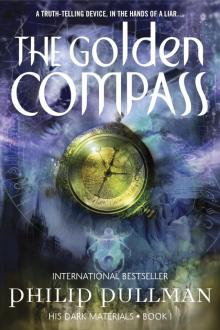 The Golden Compass
The Golden Compass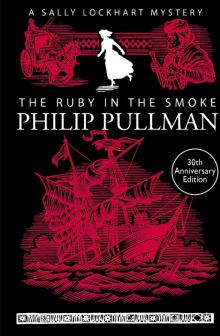 The Ruby in the Smoke
The Ruby in the Smoke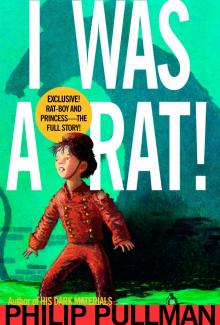 I Was a Rat!
I Was a Rat!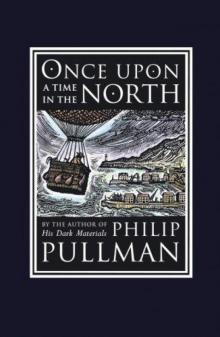 Once Upon a Time in the North
Once Upon a Time in the North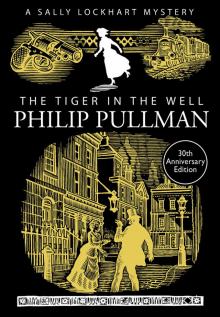 The Tiger in the Well
The Tiger in the Well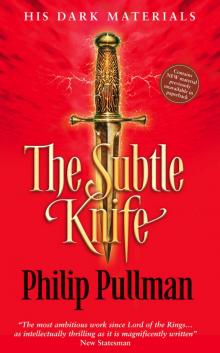 The Subtle Knife
The Subtle Knife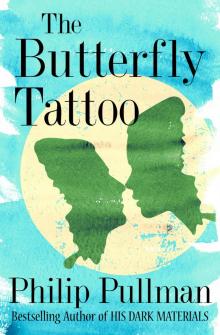 The Butterfly Tattoo
The Butterfly Tattoo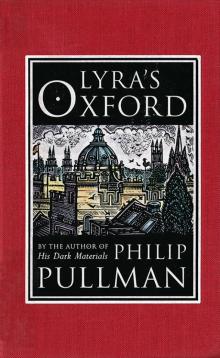 Lyra's Oxford
Lyra's Oxford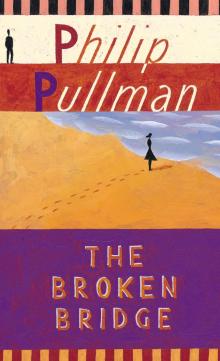 The Broken Bridge
The Broken Bridge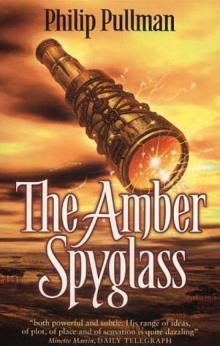 The Amber Spyglass
The Amber Spyglass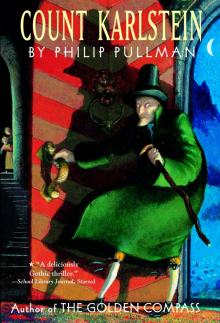 Count Karlstein
Count Karlstein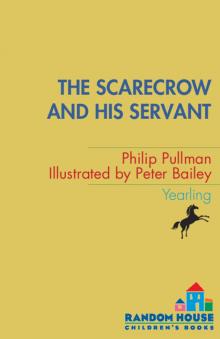 The Scarecrow and His Servant
The Scarecrow and His Servant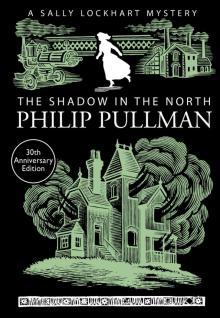 The Shadow in the North
The Shadow in the North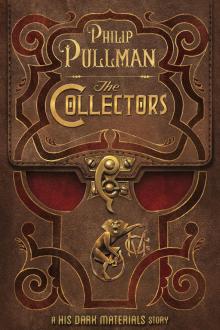 The Collectors
The Collectors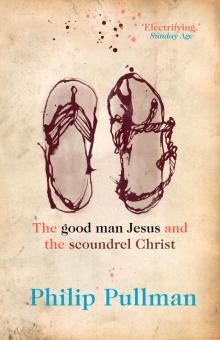 The Good Man Jesus and the Scoundrel Christ
The Good Man Jesus and the Scoundrel Christ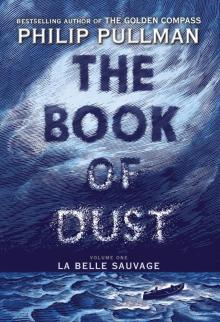 La Belle Sauvage
La Belle Sauvage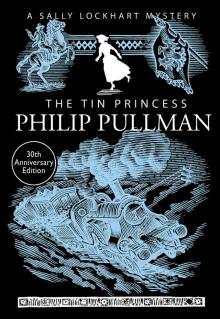 The Tin Princess
The Tin Princess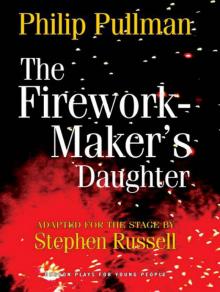 The Firework-Maker's Daughter
The Firework-Maker's Daughter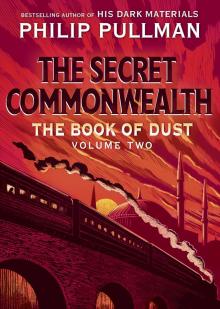 The Book of Dust: The Secret Commonwealth (Book of Dust, Volume 2)
The Book of Dust: The Secret Commonwealth (Book of Dust, Volume 2)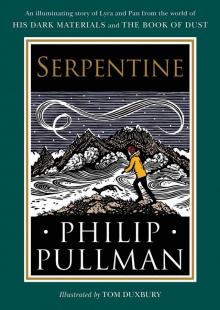 Serpentine
Serpentine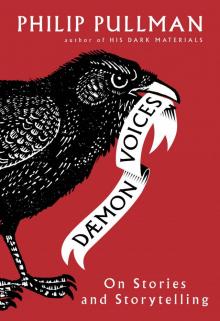 Daemon Voices
Daemon Voices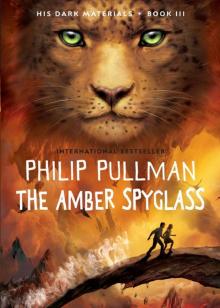 The Amber Spyglass: His Dark Materials
The Amber Spyglass: His Dark Materials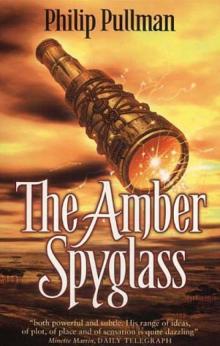 The Amber Spyglass hdm-3
The Amber Spyglass hdm-3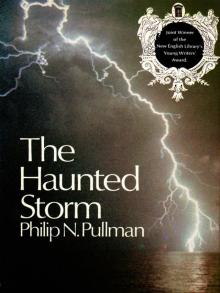 The Haunted Storm
The Haunted Storm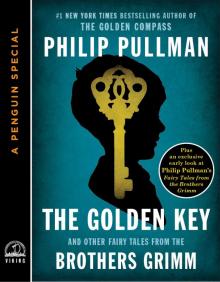 The Golden Key
The Golden Key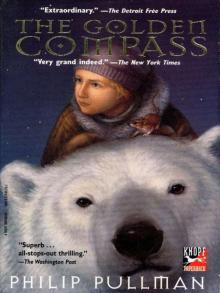 His Dark Materials 01 - The Golden Compass
His Dark Materials 01 - The Golden Compass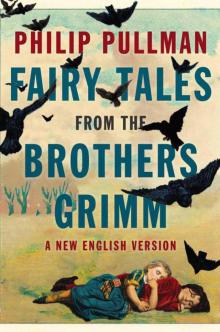 Fairy Tales from the Brothers Grimm: A New English Version
Fairy Tales from the Brothers Grimm: A New English Version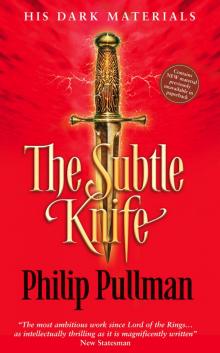 His Dark Materials 02 - The Subtle Knife
His Dark Materials 02 - The Subtle Knife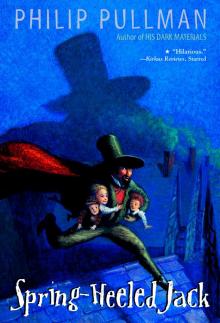 Spring-Heeled Jack
Spring-Heeled Jack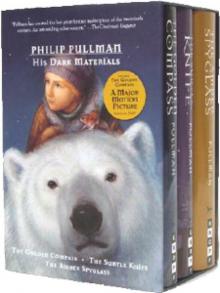 The Golden Compass hdm-1
The Golden Compass hdm-1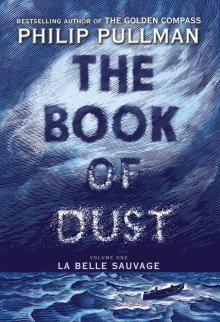 The Book of Dust, Volume 1
The Book of Dust, Volume 1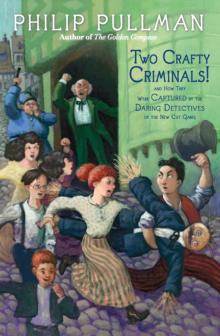 Two Crafty Criminals!
Two Crafty Criminals!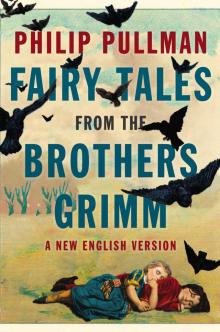 Fairy Tales from the Brothers Grimm
Fairy Tales from the Brothers Grimm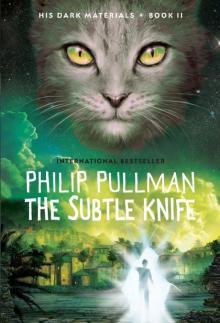 The Subtle Knife: His Dark Materials
The Subtle Knife: His Dark Materials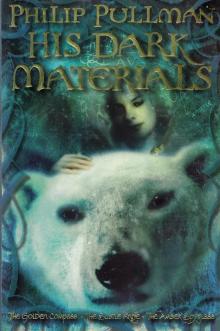 His Dark Materials Omnibus
His Dark Materials Omnibus The Golden Compass: His Dark Materials
The Golden Compass: His Dark Materials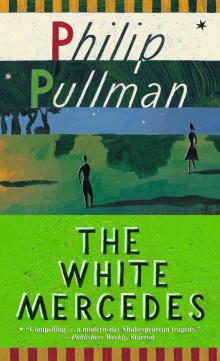 The White Mercedes
The White Mercedes